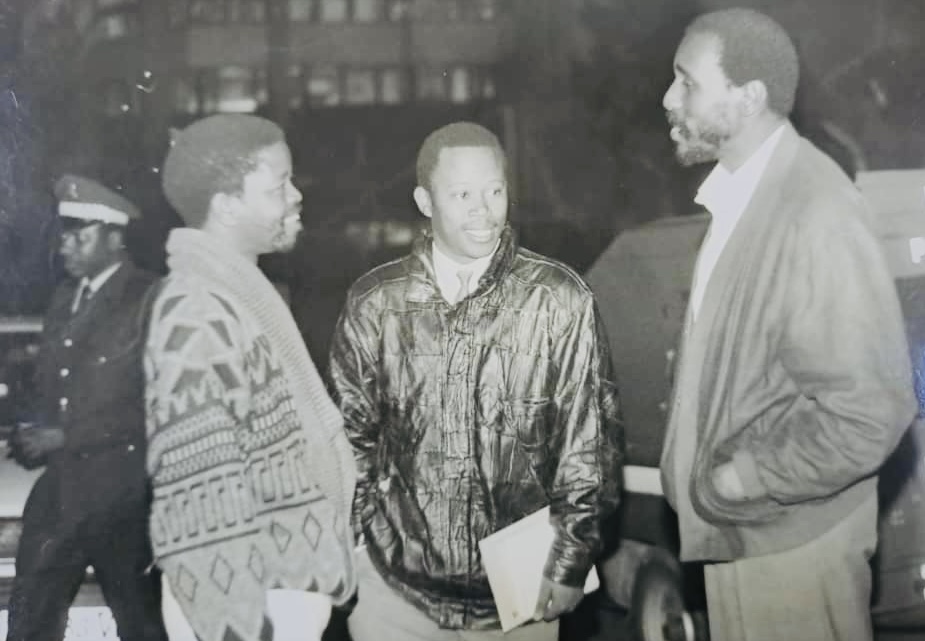Please allow me to open with warm and sincere congratulations to Journalists Association President Lwazi Dlamini on the revival of the Eswatini National Association of Journalists (ENAJ), is a monumental step, not just organisationally, but symbolically.
You, and your team, have brought back a structure that has historically anchored the identity, dignity, and professional cohesion of journalists in our country.
For that, the entire fraternity is grateful, umsebenti wenu uyancomeka kakhulu.
I further commend your Executive for reviving the National Media Awards to be held on 12th December 2025.
President, Awards are not vanity, they document excellence, set standards, and inspire young journalists to aim higher, the ongoing newsroom visits (Vusela exercises) leading up to the Awards ceremony are equally important.
When leaders walk the corridors, shake hands with reporters, sit with editors, and listen to the producers, they send a strong message that professional unity is possible, and that journalism is not a lonely trade after all.
As someone who stepped into the newsroom for the first time in August 1993, fresh from the University with my shirt tucked awkwardly into oversized trousers and my heart pounding with ambition, I look at today’s landscape with both nostalgia and urgency.
When I walked into the Times of Swaziland, as it then was called, thirty-two(32)years ago, I was fortunate to witness and later work alongside a generation of young, hungry reporters who would go on to redefine Eswatini’s media landscape.
But in my time I have watched, Qhawe ‘Ntfulini’ Mamba, Mbongeni ‘Bingo’s Jive’Mbingo, Martin ‘Tinas’ Dlamini, Sabelo ‘Msabhino’ Dlamini grow and excel in their career paths and a few years down the line I have marvelled how scribes like Zweli ‘Zwemart’ Dlamini, Thobeka ‘Mphatsi’ Manyathela, Cassandra ‘Chieftain’ Shaw, and Charles ‘Boss’ Matsebula, among other rose from being struggling, wide-eyed, wet-behind-the-ears reporters into some of the most formidable minds in our media fraternity.
Each of them clawed their way up through long nights, relentless hustle, and a near-stubborn devotion to the craft eventually occupying corner Offices, shaping national narratives, and making history.
In the case of Qhawe, Zweli and Charles, they went on to found and own internationally recognised media powerhouses, in my own journey, I had the immense privilege of working with the iconic James ‘Mnetfu’ Dlamini, a fearless journalist whose dedication bordered on mythical.
Today’s journalists would not believe me when I say James was such an avid reader he would walk from his flat in Msunduza all the way to the Times offices, a novel open in his hands, reading diligently as he moved through the city, the the newsroom of that era was a different planet.
No computers, no cellphones, and editors whose tempers and expectations could shake the walls. I was shaped by greats.
Men and women like Mashumi Thwala, Bheki Makhubu Vusi Sibisi, Jabulani Matsebula, Lathu Jonga, Timothy Simelane, Sibusiso Mngadi, Cynthia Simelane, Sandile Ntshakala, Bongiwe Zwane, Twinny Nxumalo, Gordon Mbuli, and many others. I was shaped by long conversations with Mbuso Matsenjwa, Banele Ginindza, Sabelo Masuku, Knowledge Makhanya, Bheki ‘Gamassaulting’ Gama and Martin Matse; to name a few.
Why, I still stand humbly under the towering shadow of the greatest journalist Eswatini and indeed Southern Africa has ever produced, my brother Nimrod Mabuza, whom I am privileged to have on speed dial, to say I learned from the best is a criminal understatement.
ENAJ is a champion of welfare, and a beacon for aspiring reporters, it is a partner to editors, and a voice in national discussions.
But most importantly, and with recent attacks on journalists including Giyani Msibi, Manqoba Nxumalo, Melissa Msweli, and Bongiwe Dlamini, ENAJ is a defender of media freedom.
That being the case, we need to deal with the elephant in the room. That is to say, ENAJ must fast transcend from being a mere issuer of ‘statements of condemnation’ of threats and violence on journalists. ENAJ must henceforth take tangible visible, deterrent steps to practically and effectively protect journalists and the work of the media.
There should be direct and immediate painful consequences for troubling journalists during the course of their work. This includes, but is not limited to litigation, boycotts of individuals and businesses that perpetrate this scourge, facilitation of proper compensation and restitution. ENAJ should pursue and achieve appropriate sanctions against the perpetrators, the era of issuing statements and moving on is long gone.

Former Times Editor the late Mashumi Thwala, Musa Ndlangamandla and former Observer Editor Lathu Jonga
